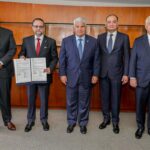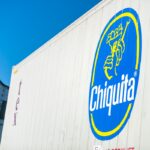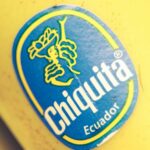U.S. appeals court throws out Chiquita terrorist payment claim case

An appeals court in Florida has dismissed a case alleging Chiquita Brands International (NYSE: CQB) made payments to paramilitaries in Colombia that led to the deaths of thousands, stating it does not apply to U.S. jurisdiction.
The case 'Liliana Maria Cardona, et al v. Chiquita Brands International, Inc., et al' was thrown out of court with two judges in favor, and one who dissented.

Photo: AJ Maritan, via Flickr Creative Commons
The document from the 11th U.S. Circuit Court of Appeals said more than 4,000 Colombian claimants had alleged claims of torture, personal injury, and death under the Torture Victims Protection Act (TVPA) and the Alien Tort Statute (ATS).
The Honorable David Bryan Sentelle judged the TVPA claims had become "undeniably unviable" after a district court denied a motion to dismiss in 2012.
Sentelle also cited the case 'Mohamad v. Palestinian Authority, __U.S.__, 132 S. Ct. 1702 (2012)' where a unanimous court held that the TVPA "authorizes liability solely against natural persons".
"The defendant- appellants are Chiquita Brands International, Inc., and Chiquita Fresh North America, LLC. Neither is a natural person. The claims under the TVPA must be dismissed," Sentelle said.
Sentelle then went on to emphasize that the ATS does not apply extraterritorially, mentioning several precedents.
The Honorable Beverly B. Martin however was critical of this interpretation of the ATS, claiming it was deliberately crafted to prevent innocents from being disarmed against "American corporations that engage in human rights violations abroad".
"More fundamentally, the framers of the ATS gave voice to the idea that the United States had not only the authority, but also international legal obligations to provide a forum for aliens to receive compensation for the most egregious offenses committed by Americans in other countries.
"Again, these plaintiffs do not seek relief for the offenses of a foreign defendant on foreign soil. These plaintiffs seek relief in a United States court for violations of international law committed by United States citizens while on United States soil," she added.
Martin emphasized the application of the ATC did not have extraterritorial grounds, as the alleged actions made by Chiquita occurred from the company's U.S. headquarters.
"Critically, the plaintiffs instead have alleged that Chiquita’s corporate officers reviewed, approved, and concealed payments and weapons transfers to Colombian terrorist organizations from their offices in the United States with the purpose that the terrorists would use them to commit extrajudicial killings and other war crimes."
A Chiquita spokesperson was pleased the courts had agreed with the company's position.
"Chiquita has long maintained that these cases do not belong in U.S. courts and that the claims should be dismissed. We are gratified that the U.S. Court of Appeals has now agreed with us and that the claims have been dismissed," the spokesperson said.
"The decision reinforces what Chiquita has maintained from the beginning -- that Chiquita is not responsible for the tragic violence that has plagued Colombia. The fact is that violent Colombian guerrillas and paramilitaries extorted Chiquita's Colombia subsidiary, and threatened, kidnapped, and killed its workers.
"Chiquita acceded to the extortion demands of these groups for one reason and one reason only -- to protect its employees from retaliation."
The company expressed its condolences for the victims of armed groups in Colombia.
"Chiquita has great sympathy for the Colombians who suffered at the hands of these Colombian armed groups, but the responsibility for the violent crimes committed in that country belongs to the perpetrators, not to the innocent people and companies they extorted," the spokesperson said.













































